Today's poem is written to my grandfather's christening photo. I'm struck by the length of the gown, the setting of the portrait, and the serious look on his face. This photo immediately made me think of my mother, who could shoot a look that made you know you were in big trouble. She didn't even need to speak. One look and you just knew. That's where this poem went.
I hope you'll come back tomorrow and see what new inspiration I've found for a poem. Until then, you may want to read previous poems in this series. I'm also sharing these poems on my Instagram in case you want to see them all in one place.
April 1 - Senryu to a photo of my grandmother as a child
April 2 - Haiku to my mother's recipe
April 3 - Dodoitsu to a war memento
April 4 - Choka to my mother's engagement announcement
April 5 - Gogyohka to the receipt for my mother's engagement ring
April 6 - Senryu to a student's drawing of my dad
April 7 - Tanka to a photo of my grandmother and her mother by a car
April 8 - Dodoitsu to a piece of V-mail from my great uncle
April 9 - Senryu to a Christmas card from Paris during the war (1944)
April 10 - Somonka to a war letter to my father
April 11 - Dodoitsu to an early family portrait of my mother
April 12 - Senryu to a photo of WWII nose art
April 13 - Senryu to a pair of postage stamps issued in 1934
April 14 - Somonka to a war letter to my father
April 15 - Senryu to a photo of my mother as a child
April 16 - Senryu to an Easter card my grandmother sent my grandfather
April 17 - Senryu to an Easter card my grandfather sent my grandmother
April 18 - Tanka to a First Day Cover celebrating NATO's 10th anniversary (1959)
April 19 - Somonka to my grandparent's wedding photo
April 20 - Dodoitsu to a list my grandfather made of the cars he owned
April 21 - Haibun to a newspaper story about a car accident my father was in
April 22 - Tanka to a newspaper masthead from NAAS Jacksonville (1945)

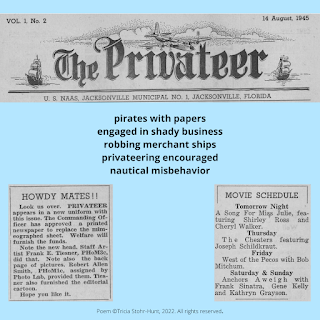



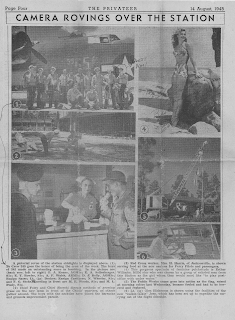


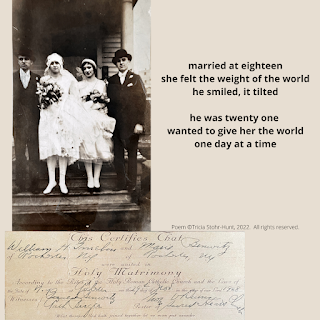
.png)

.png)

.png)






.png)
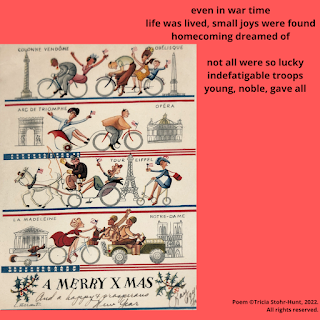
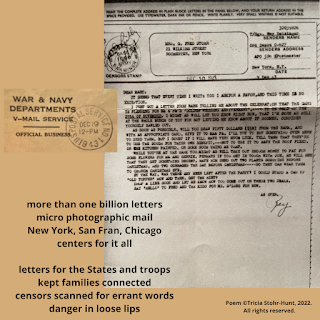
.png)

.png)
